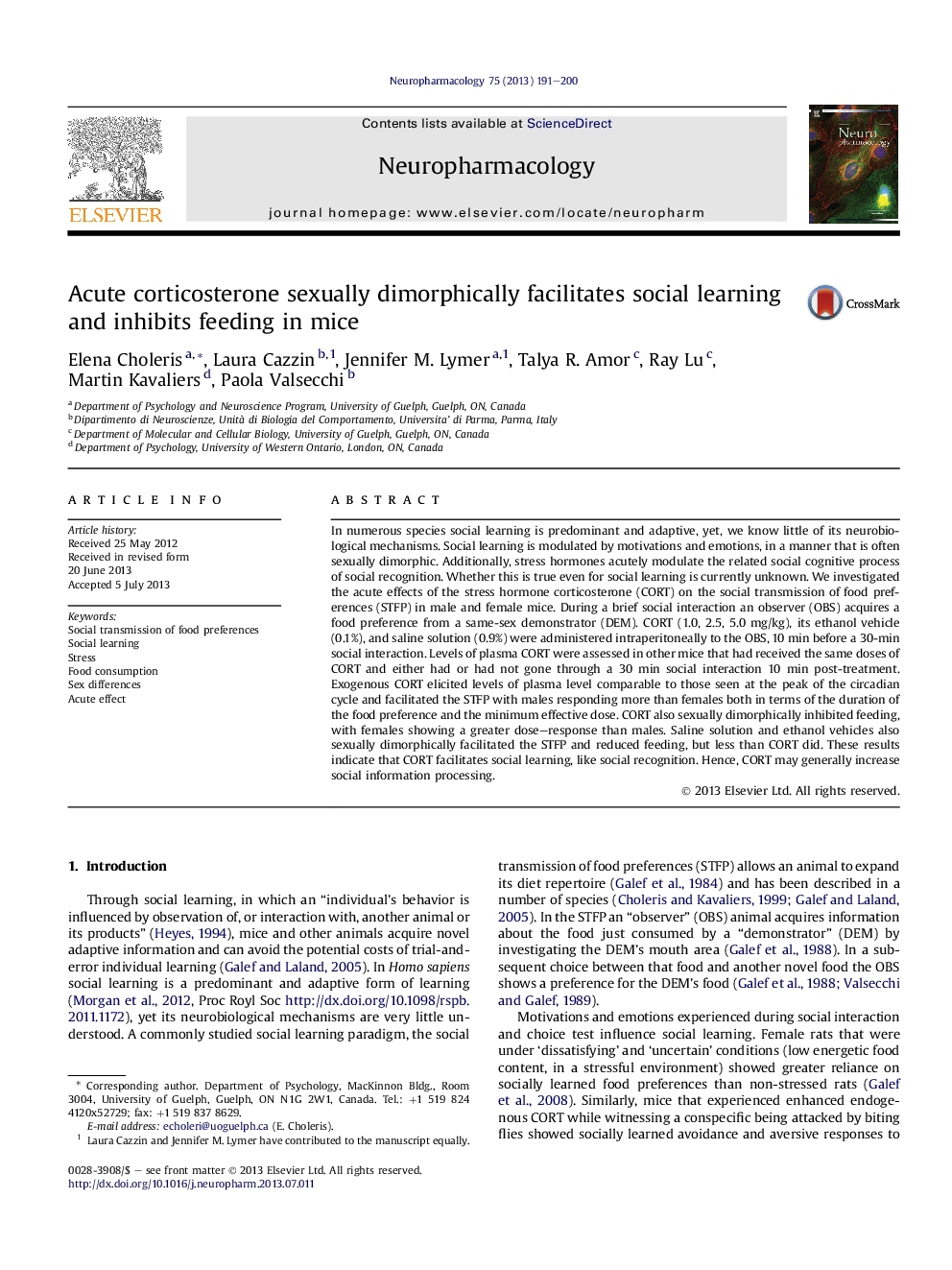| Article ID | Journal | Published Year | Pages | File Type |
|---|---|---|---|---|
| 2493356 | Neuropharmacology | 2013 | 10 Pages |
•Acute corticosterone prolonged a socially acquired food preference in mice.•Acute corticosterone inhibited food consumptions in mice.•Acute corticosterone effects were sexually dimorphic.•Acute corticosterone effects on social learning were greater in males than females.•Acute corticosterone effects on feeding were greater in females than males.
In numerous species social learning is predominant and adaptive, yet, we know little of its neurobiological mechanisms. Social learning is modulated by motivations and emotions, in a manner that is often sexually dimorphic. Additionally, stress hormones acutely modulate the related social cognitive process of social recognition. Whether this is true even for social learning is currently unknown. We investigated the acute effects of the stress hormone corticosterone (CORT) on the social transmission of food preferences (STFP) in male and female mice. During a brief social interaction an observer (OBS) acquires a food preference from a same-sex demonstrator (DEM). CORT (1.0, 2.5, 5.0 mg/kg), its ethanol vehicle (0.1%), and saline solution (0.9%) were administered intraperitoneally to the OBS, 10 min before a 30-min social interaction. Levels of plasma CORT were assessed in other mice that had received the same doses of CORT and either had or had not gone through a 30 min social interaction 10 min post-treatment. Exogenous CORT elicited levels of plasma level comparable to those seen at the peak of the circadian cycle and facilitated the STFP with males responding more than females both in terms of the duration of the food preference and the minimum effective dose. CORT also sexually dimorphically inhibited feeding, with females showing a greater dose–response than males. Saline solution and ethanol vehicles also sexually dimorphically facilitated the STFP and reduced feeding, but less than CORT did. These results indicate that CORT facilitates social learning, like social recognition. Hence, CORT may generally increase social information processing.
